Table of Contents
Michel Legrand composed the soundtrack for the 1971 coming-of-age movie “The Summer of ’42,” including its poignant main theme, “The Summer Knows.” From what I understand, the LP marketed as the time as the film’s soundtrack actually had only two tracks from the film: the main theme and the end titles track.
Please, subscribe to our Library.
If you are already a subscriber, please, check our NEW SCORES’ page every month for new sheet music. THANK YOU!
The remainder of the material on the LP – now as a pricey out-of-print CD – came from the score Legrand composed for the 1969 film, “Picasso Summer.” Anyway, here’s the main theme from “The Summer of ’42.”
Michel Legrand – Theme from “Summer of ’42”
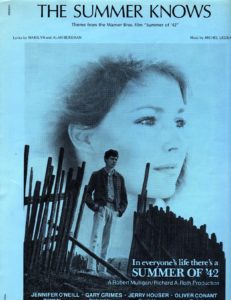
Michel Legrand
“Ever since I was a boy, my ambition has been to live completely surrounded by music. My dream is not to miss out anything. That’s why I’ve never settled on one musical discipline. I love playing, conducting, singing and writing, and in all styles. So I turn my hand to everything – not just a bit of everything. Quite the opposite. I do all these activities at once, seriously, sincerely and with deep commitment.”
This is how Michel Legrand describes his status as an atypical, compulsive musician who cannot be pigeonholed; or rather, his many statuses as a composer, conductor, pianist, singer, writer and producer. Tearing down the barriers between jazz, classical music and easy listening, he is at home in any musical situation. Born in 1932, Michel Legrand came from a family with a musical tradition represented by his father, Raymond Legrand and his uncle Jacques Hélian.
When he was ten, he entered the Paris Conservatory, which proved to be an unexpected revelation. “Until then, my childhood had been flat and unhappy,“ he relates. “ My life revolved around an old piano and I was very bored. I was very lonely. Suddenly, when I joined Lucette Descaves’ music theory class, I discovered a world that belonged to me, people who spoke my language. From then on, I felt that life had something exciting and motivating to offer”
After studying under the iron rule of Nadia Boulanger, Henri Challan and Noël Gallon for several years, Legrand left the Conservatory with top honors in harmony, piano, fugue and counterpoint. He immediately gravitated to the world of song, working as an accompanist musical director to Maurice Chevalier. He traveled with the famous French singer on his international tours.
Best Sheet Music download from our Library.
This gave him the opportunity to visit the United States for the first time. His instrumental LP, I Love Paris, did extremely well in that country, topping the US album charts in 1954. His first hit record also had great symbolic significance, revealing his international potential: the talented 22 year old did not look back and continued to go from strength to strength in France and abroad.
In the 1950s, Michel Legrand also started composing for some of the artists he was accompanying. His first great song La Valse des Lilas, displayed an individual style of melodic writing which soon became his hallmark. “ I put a great deal of faith in melody”, he admits. “Nadia Boulanger always said: “ Put whatever you want above and below the melody but, whatever happens, it’s the melody that counts.’ For example, modern music tends to bore me now. It does of course contain innovative rhythmic and contrapuntal devices but, without melody, its lifeblood, it is lifeless and this helps to dehumanize it. For my part, melody is a mistress to whom I’ ll always be faithful.”
In 1955, Michel Legrand turned his hand to another mode of expression when he wrote the film score Les Amants du Tage by Henri Verneuil. Four years later, with the advent of the French New Wave, he became one of the architects of the revival of French cinema. He began collaborating with Jean-Luc Godard, Agnès Varda, François Reichenbach and, of course, Jacques Demy, his creative alter ego, with whom he invented a new genre of film musical.
As well as being awarded the Palme d’Or at the Cannes festival and the Prix Louis Delluc, The Umbrellas of Cherbourg achieved massive world-wide success – despite the pessimistic predictions of many industry professionals. “Jacques and I had to work really hard to get this project off the ground,” remembers Legrand, “The producers showed us the door saying: “You’re a couple of nice young guys, but do you really think that people will spend an hour-and-a-half listening to characters singing life’s little platitudes!”
They were afraid to finance a film that substituted singing for dialogue and that had a realist slant, much the same as everyday life. After a year of uncertainty, things began moving again, thanks to Pierre Lazareff (who introduced us to Mag Bodard, a young producer) and my friend Francis Lemarque, with whom I recorded the music. In other words, The Umbrellas of Cherbourg is a work that was made against everybody’s better judgement!”
The parting lovers’ theme song, Je ne pourrai jamais vivre sans toi, initially covered by Nana Mouskouri, became a popular standard, largely owing to the English adaptation by Norman Gimbel ( I Will Wait for You ) as well as versions by Frank Sinatra, Tony Bennett, Louis Armstrong and Liza Minelli. Legrand continued to set Jacques Demy’s imaginative lyrics to music ( Les Demoiselles de Rochefort, Peau d’âne, Trois places pour le 26 ), although he moved to Los Angeles in 1968 for what he called “a change of scene”.
After the success of the Thomas Crown Affair and his song The Windmills of Your Mind, Legrand decided to divide his time between Paris and Hollywood, working on anything that appealed to him: Un été 42, Lady Sings the Blues, Jamais plus Jamais, Yentl, Prêt-à-porter . Regarding film music as another form of dialogue, Michel Legrand is the only European composer with a filmography that includes names like Orson Welles, Marcel Carné, Clint Eastwood, Norman Jewison, Louis Malle, Andrzej Wajda, Richard Lester, Claude Lelouch, to name just a few. Nonetheless, his prestigious awards in the field of screen music (three Oscars) have had no impact on his creativity.
“An Oscar”, he stresses with conviction, “is a gold star, a piece of flattery, the sweet taste of success but, deep down, it doesn’t make you any better or worse as a composer, your strengths or weaknesses remain unchanged. When I was a boy, I imagined that I had a pot of grease with special powers: If I dipped my fingers in it, I would have the technique of a Horowitz. Unfortunately, Oscar statuettes aren’t covered in grease! (Laughter). In any case, that’s not what counts: I wrote all that music for and because of the cinema. Without films none of it would exist.”
In 1964, Michel Legrand decided to perform his songs himself, adding yet another string to his bow. His voice became an additional instrument that he could put to unaccustomed use. “My idea”, he admits, “was simply to give it a try, to see what it was all about. I also did it to overcome my shyness. After years of being on stage with my back to the audience, I made up my mind to do the opposite, to turn round and face the spectators. Actually, I started to be tempted by the idea after Jacques Brel asked me to do the first half of his show at the Olympia. I was very surprised. Just as surprised as Claude Nougaro was when I encouraged him to perform the songs we’d written together ( Les Don Juan, Le cinema ).
These things show how connected we all are, like interlocking wheels. With Jacques Brel’s encouragement, I took the plunge…” Michel Legrand worked on his voice and focused in particular on building up a repertoire with two writers of his choice: Eddy Marnay ( Les Moulins de mon coeur, Quand on s’aime, Les enfants qui pleurent ) and Jean Dréjac ( Comme elle est longue à mourir majeunesse, Oum le Dauphin, L’été ’42 ). He subsequently had the chance to put music to lyrics by Jean-Loup Dubadie, Boris Bergman, Françoise Sagan and Jean Guidoni and, in 1981, he himself wrote the words for his album Attendre… which he also performed and composed. In America, Michel Legrand’s loyalty to Alan and Marilyn Bergman has given rise to scores of great numbers, usually theme songs ( The Summer Knows, How Do You Keep The Music Playing ? and The Way He Makes Me Feel ).
After more than 45 years of composing, Michel Legrand is more versatile than ever. Constantly on the lookout for new encounters and collaborations, he is an indefatigable inventor, refusing to establish a hierarchy between musical genres (“To my mind, a beautiful tango is worth more than some works by Wagner…”) He believes that composition is also an original means of introspection. “The way to make progress”, he declares, “is to be the only one who can create things that no one has ever thought of before. It’s also a way of finding out more about oneself. I want to be more aware of what I can do, even if it means going too far. If I want my ship to continue sailing the waves, I must try out new sails and see where they take me. Having said that, I am highly organized mentally, because of my classical education. I often work on several projects simultaneously. I spend three hours composing for a film, I play the piano for two hours, I finish a song. In fact, every job is a version of the previous one. Even so, music is still a never-ending set of equations that have to be solved. Sometimes, you think of an idea, you can picture it, you can already hear it. You rush over to the score to write it down, thinking a priori that it’ll be simple and easy. Wrong! Umpteen obstacles suddenly appear: form, content, small details. This is because, if you want to be original, every bar poses a problem.”
Also typical of Michel Legrand’s character is that he rejects the concept of a career: “I hate the idea of goals, results, limits. I’m an artist, not a politician. I’m motivated by life and by the richness and diversity of all kinds of music. Without forgetting that what’s really important is to remain a beginner. One of the most stimulating periods of your life is the time when you’re discovering things, when you’re learning. When you become too skilful, your spontaneity disappears, you’re no longer afraid of anything. I hope I never become someone whom people coolly describe as “very professional”. Throughout my life, I’ve always wanted to vary my musical pleasures, and to remain an eternal beginner, without ever rationalizing things in terms of a “career”. Stravinsky once said: “We insomniacs are always trying to find a cool spot on the pillow.” I’ve been searching endlessly for that spot for years!”
It is impossible to say everything there is to say about Michel Legrand in just a few lines – to describe his love of jazz, his historic sessions with Miles Davis, Stan Getz, Phil Woods or Stéphane Grapelli, his meetings with the big names in classical music (Kiri Te Kanawa, Jessye Norman, Maurice André) or easy listening (Yves Montand, Barbra Streisand, CharlesAznavour), to explain how he became a film producer ( Cinq jours en juin ) or chart the remarkable history of Passe-muraille, an opera buffa written with Didier Van Cauwelaert, which was on the bill at the Bouffes-Parisiens for a year, between 1997 and 1998. In any case, although he may still have some wonderful projects in store, Michel Legrand has already succeeded in meeting one singular challenge – that of living several lives in one lifetime.
2014 saw Michel Legrand still performing 60 concerts across the globe. His new ballet, choreographed by John Neumeier from the Hamburg Ballet opened to phenomenal success in Costa Mesa, California, as a prelude to a US tour. Michel’s new concerto for harp was premiered in Philadelphia in February 2014 and his new opera, ‘Dreyfus’, opened at Opéra de Nice in May 2014. To coincide with the 50th Anniversary of ‘The Umbrellas of Cherbourg’, Michel Legrand conducted the oratorio version of ‘Les Parapluies de Cherbourg’ at Théâtre Châtelet. There were 5 exceptional performances preceding a worldwide tour.
The CD “Natalie Dessay Sings Michel Legrand” which was released in October 2013 has been certified gold, with sales of 50,000 in France and was followed by a spectacular world tour for three years.
Shortly after this international tour, the Hamburg Ballet Liliom by John Neumeier commissioned Michel Legrand to write a ballet based on the beautiful story of Liliom. The ballet was choreographed by John Neumeier and was performed for the first time in the Segerstrom Center for the Arts, Costa Mesa, California, USA.
In March 2014, Michel Legrand wrote a beautiful score for the new Xavier Beauvois movie ‘Love Is A Perfect Crime’. The movie was presented at the Cannes Film Festival in May 2014 and was nomin
“Melody is a mistress
to whom I’ll always be faithful”
ation at two other film festivals. Throughout 2014 he performed concerts in France, Ireland, Japan, Argentina, Brazil, Russia, USA, Denmark, The Netherlands and Belgium for more than 50 concerts!
Prior to the 50th anniversary of the movie ’Les Parapluies de Cherbourg’ in September 2014, an Oratorio version of the movie had its Worldwide Première at Le Théatre du Chatelet with the Ile-de-France Symphonic Orchestra conducted by Michel Legrand himself.
The performance had seen such a huge success that more dates were added for 2015; An already busy year with concerts all around the world including a tour in South America with Soprano Natalie Dessay and the recording of new album ‘Michel and friends’ which came out in November later that year.
In January 2016, Michel Legrand gave a stunning performance with a Big Band and friends tenor Vincent Niclo, Soprano Natalie Dessay, and Maurane at Le Palais des Congrès, Paris during the concert ‘Michel Legrand invite Vincent Niclo’.
Later in May 2016 Michel Legrand was in Kalamazoo, Michigan, to receive an honorary Doctorate from Western Michigan University as part of his first visit to the Irving S.Gilmore International Keyboard Festival. While in Kalamazoo, Mr. Legrand performed a commissioned World Premiere, Concerto for Piano and Orchestra with the Kalamazoo Symphony Orchestra.
Summer 2016 has been filled with Festivals in Argentina, and France and the year will continue to be extremely busy with concerts around Europe. ‘Michel Legrand invite Vincent Niclo’ has been touring until October 2016.
The year of 2017 was rich with Michel Legrand’s 85th Birthday tour around the world and two precious album releases.
” I want to be more aware of what I can do, even if it means going too far.
If I want my ship to continue sailing the waves,
I must try out new sails and see where they take me.”
Sheet Music download.
Summer of ’42
Summer of ’42 is a 1971 American coming-of-age film based on the memoirs of screenwriter Herman “Hermie” Raucher. It tells the story of how Raucher, in his early teens on his 1942 summer vacation on Nantucket Island (off the coast of Cape Cod), embarks on a one-sided romance with a young woman, Dorothy, whose husband has gone off to fight in World War II.
The film was directed by Robert Mulligan, and starred Gary Grimes as Hermie, Jerry Houser as his best friend Oscy, Oliver Conant as their nerdy young friend Benjie, Jennifer O’Neill as the mysterious woman with whom Hermie becomes involved, and Katherine Allentuck and Christopher Norris as a pair of girls whom Hermie and Oscy attempt to seduce. Mulligan also has an uncredited role as the voice of the adult Hermie. Maureen Stapleton (Allentuck’s mother) also appears in a small, uncredited voice role.
Raucher’s novelization of his screenplay of the same name was released prior to the film’s release and became a runaway bestseller, to the point that audiences lost sight of the fact that the book was based on the film and not vice versa. Though a pop culture phenomenon in the first half of the 1970s, the novelization went out of print and slipped into obscurity throughout the next two decades until a Broadway adaptation in 2001 brought it back into the public light and prompted Barnes & Noble to acquire the publishing rights to the book. The film was followed by a sequel, Class of ’44, also written by Raucher, with lead actors Grimes, Houser, and Conant reprising their roles.
Browse in the Library:
| Artist or Composer / Score name | Cover | List of Contents |
|---|---|---|
| The Jazz Tradition by Martin Williams (1993) |
 |
|
| The Joe Pass Collection with Tablature |
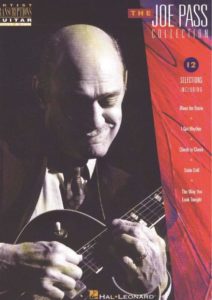 |
The Joe Pass Collection |
| The John Coltrane companion by Carl Woideck |
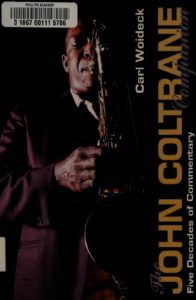 |
|
| The John Dunbar Theme – John Barry (Musescore File).mscz | ||
| The Joy Of Baroque Music |
 |
|
| The Joy Of Boogie And Blues |
 |
The Joy Of Boogie And Blues |
| The Joy Of Boogie And Blues Book 2 |
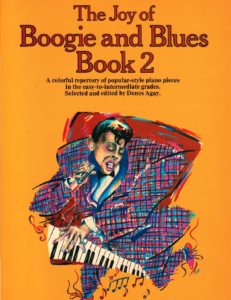 |
Boogie And Blues. Book 2 The Joy Of |
| The Joy Of Christmas – The Best loved Carols, Hymns, songs and solos |
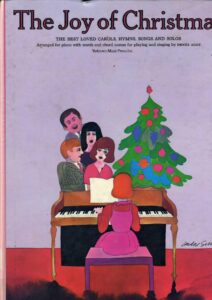 |
The Joy Of Christmas – The Best loved Carols, Hymns, songs and solos |
| The Joy Of Classics Collection Of Easy Classical Piano Pieces |
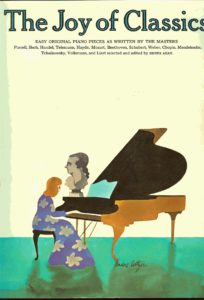 |
The Joy Of Classics Collection Of Easy Classical Piano Pieces |
| The Joy Of Disney – Easy Piano Songbook |
 |
The Joy Of Disney – Easy Piano Songbook |
| The Joy Of First Classics – Easy pieces – Easy Piano Songbook |
 |
The Joy Of First Classics – Easy pieces – Easy Piano Songbook |
| The Joy Of First Year Piano Music |
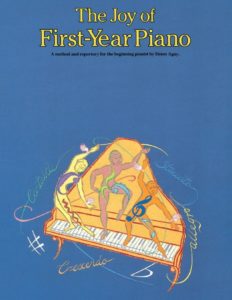 |
|
| The Joy of First-Year Piano by Denes Agay (Easy piano, piano facile) |
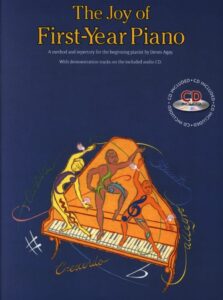 |
The Joy of First-Year Piano by Denes Agay (Easy piano, piano facile) |
| The Joy Of French Piano Music |
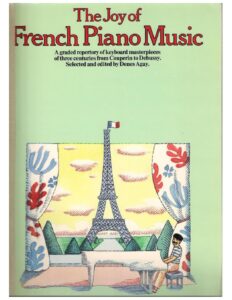 |
The Joy Of French Piano Music |
| The joy of George Gershwin |
 |
The joy of George Gershwin |
| The Joy Of Italian Melodies – Easy Piano Songbook |
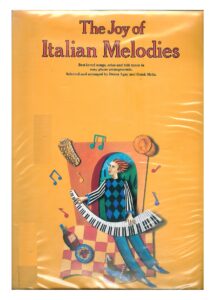 |
The Joy Of Italian Melodies – Easy Piano Songbook |
| The Joy Of Jazz (Easy to Medium Grade Piano Solos) |
 |
The joy of Jazz |
| The Joy Of Modern Blues |
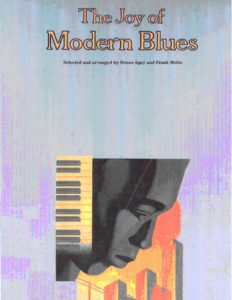 |
The Joy Of Modern Blues |
| The Joy Of Modern Piano Music (20th century classical music) |
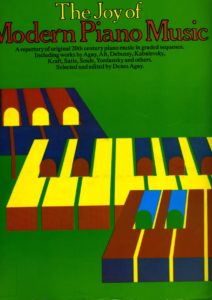 |
The Joy Of Modern Piano Music (20th century classical music) |
| The Joy Of More Classical Music |
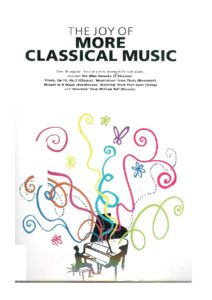 |
The Joy Of More Classical Music |
| The Joy of Music – Bernstein, Leonard 1918-1990 (Book) |
 |
|
| The Joy Of Piano Duets |
 |
The Joy Of Piano Duets |
| The Joy Of Piano Entertainment Piano Solo selected by Denes Agay |
 |
The Joy Of Piano Entertainment Piano Solo selected by Denes Agay |
| The Joy Of Pop Tunes – Easy Piano Songbook |
 |
The Joy Of Pop Tunes – Easy Piano Songbook |
| The Joy Of Recital Time Piano Solo selected by Denes Agay |
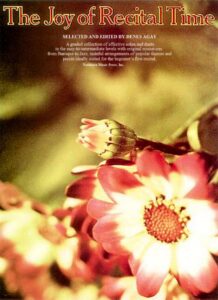 |
The Joy Of Recital Time Piano Solo selected by Denes Agay |
| The Joy Of Russian Piano Music |
 |
|
| The Joy Of Sonatinas – Easy Piano Songbook |
 |
The Joy Of Sonatinas – Easy Piano Songbook |
| The Jungle Book Soundtrack Disney |
 |
The Jungle Book Soundtrack |
| The Keyboard Music Of Bach J.S. by David Schulenberg (eBook) |
 |
|
| The Killers – All These Things That I’ve Done Sheet Music |
 |
|
| The Killers – Mr Brightside Sheet Music |
 |
|
| The Killers – Shot At The Night Sheet Music |
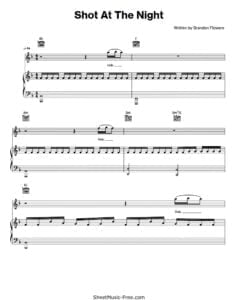 |
|
| The Killers – Somebody Told Me Sheet Music |
 |
|
| The Killers – When You Were Young Sheet Music |
 |
|
| The Killers – Human (sheet music with guitar chords) |
 |
|
| The Killers Day & Age |
 |
The Killers Day & Age |
| The King And I – A Musical Play Piano Vocal Score by Rodgers and Hammerstein II | The King And I – A Musical Play Piano Vocal Score by Rodgers and Hammerstein II | |
| The Kinks Guitar Legends Songbook With Tablature TABs |
 |
The Kinks Guitar Legends Songbook With Tablature TABs |
| The Lang Lang Piano Method Level 1 (Lang Lang) |
 |
|
| The Lang Lang Piano Method Level 2 (Lang Lang) |
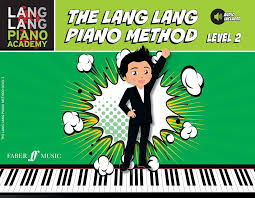 |
|
| The Lang Lang Piano Method Level 3 (Lang Lang) |
 |
|
| The Lang Lang Piano Method Level 4 (Lang Lang) |
 |
|
| The Lang Lang Piano Method Level 5 (Lang Lang) |
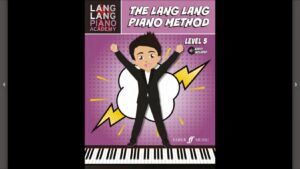 |
|
| The Lark Ascending (Musescore File).mscz | ||
| The Last 5 Years Songbook Movie Vocal Selections (Jason Robert Brown) Piano Vocal Guitar |
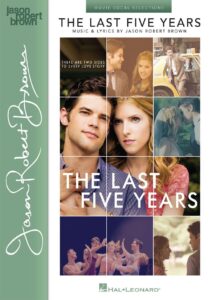 |
The Last 5 Years Songbook Movie Vocal Selections (Jason Robert Brown) Piano Vocal Guitar |
| The Last Of The Mohicans (Main Theme) by Trevor Jones | The Last Of The Mohicans (Main Theme) by Trevor Jones | |
| The Last Of Us Piano Medley (Musescore File).mscz | ||
| The Last of Us – Main Theme Guitar arr. sheet music with TABs |
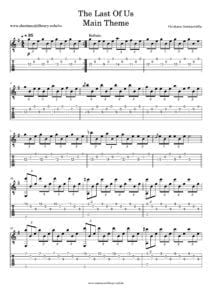 |
|
| The Last of Us -All Gone (Aftermath) Gustavo Santaolalla (Easy Piano Solo arr.) |
 |
|
| The Last Of Us -All Gone (Aftermath) Gustavo Santaolalla (Easy Piano Solo Arr.) (Musescore File).mscz | ||
| The Last Of Us Main Theme Guitar (Musescore File).mscz | ||
| The Last Of Us Theme by Gustavo Santolalla (Piano Game Sheet Music) | The Last Of Us Theme by Gustavo Santolalla (Piano Game Sheet Music) | |
| The Last Run (Jerry Goldsmith) | ||
| The Legend Of The Wind Nausicaa Of The Valley Of The Wind |
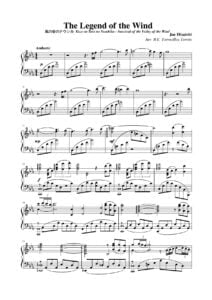 |
|
| The Legend of Zelda Overworld music Konchan | ||
| The Legend of Zelda – Great Fairy Fountain |
 |
|
| The Legend Of Zelda Main Theme Kondo Koji (Musescore File).mscz | ||
| The Legend Of Zelda Series For Easy Piano |
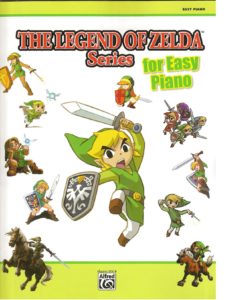 |
|
| The Legend of Zelda Twilight Princess – Midnas Theme | ||
| The Lennon Companion – Book (2004) by E. Thomson & D. Gutman – John Lennon’s Biography |
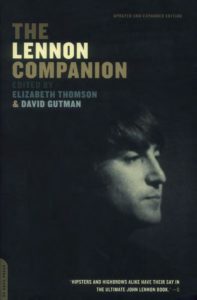 |
|
| The Library Of Easy Piano Classics Vol. 1 |
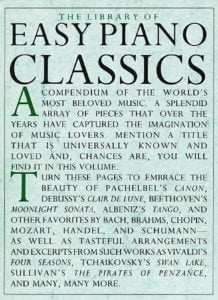 |
The Library Of Easy Piano Classics, Vol.1 |
| The Library Of Easy Piano Classics Vol. 2 |
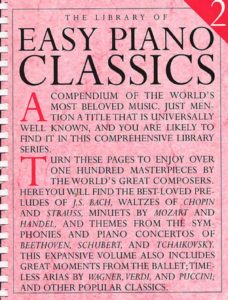 |
The Library Of Easy Piano Classics Vol 2
 |
| The Life And Music Of Charlie Parker bird by Chuck Haddix (Book) Biography |
 |
|
| The Light Between Oceans Isabel Alexandre Desplat – Isabel Sheet Music |
 |
|
| The Light In The Piazza 2005 Tony Award Winner by Adam Guettel Piano Vocal |
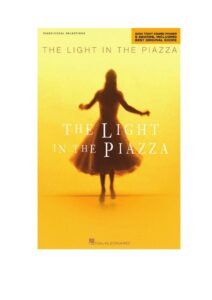 |
The Light In The Piazza 2005 Tony Award Winner by Adam Guettel Piano Vocal |
| The Lion King – Broadway selections – Elton John |
 |
The Lion King – Broadway selections – Elton John |
| The Lion King – Can You Feel The Love Tonight – Elton John | Elton John – Can You Feel The Love Tonight | |
| The Lion King – Circle Of Life – Elton John | Elton John Circle of life- | |
| The Lion King – Piano Elton John |
 |
|
| The Lion King (The Musical)- Piano Vocal (Full Conductor’s Score) | The Lion King (The Musical)- Piano Vocal (Conductor’s Score) | |
| The Lion King Disney’s – Original songs |
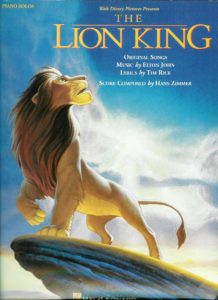 |
The Lion King Disney’s – Original songs |
| The Lion King The Musical Full Score Hans Zimmer, Elton John, Tim Rice |
 |
|
| The Little Mermaid She’s In Love (Disney) |
 |
|
| The Little Mermaid Broadway Score |
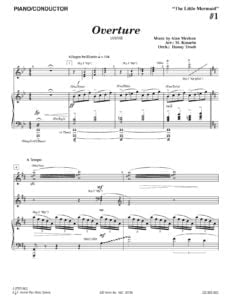 |
|
| The Little Mermaid Disney’s Sheet Music Book |
 |
The Little Mermaid Disney’s Sheet Music Book |
| The Living Sculptures of Pemberley from Pride and Prejudice | The_Living_Sculptures_of_Pemberley_from_Pride_and_Prejudice | |
| The Longest Night (Mother’s Boys OST) Clair Marlo | ||
| The Look Of Love – Burt Bacharach (Musescore File).mscz | ||
| The Lord of the Rings The Return of the King Minas Tirith | Lord of the Rings – The Return of the King.PDF | |
| The Lord Of The Rings The Return Of The King Howard Shore Viggo Mortensen |
 |
|
| The Lord of the Rings (Howard Shore) Symphonic Suite |
 |
|
| The Lord Of The Rings Complete Score Howard Shore |
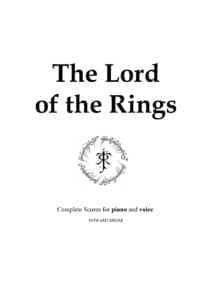 |
The Lord Of The Rings Complete Score Howard Shore |
| The Lord of the Rings sheet music Piano & Vocal |
 |
 |
| The Lumineers Songbook (The Lumineers) with Guitar TABs by Jeremy Fraire and Wesley Schultz |
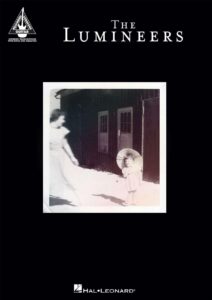 |
The Lumineers Songbook (The Lumineers) with Guitar TABs by Jeremy Fraire and Wesley Schultz |
| The Making Of Kind Of Blue Miles Davis And His Masterpiece (Book) |
 |
|
| The Mandalorian Music From The Disney Original Series (Star Wars) Piano Solo |
 |
The Mandalorian Music From The Disney Original Series (Star Wars) Piano Solo |
| The Manhattan Transfer Bodies And Souls |
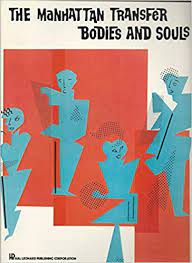 |
 |
| The Manhattan Transfer Songbook |
 |
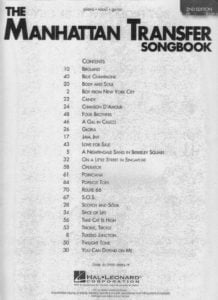 |
| The many Crimes of Cain (To Kill a Priest OST) Georges Delerue & Joan Baez |
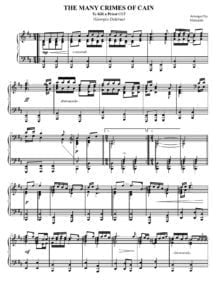 |
|
| The Moody Blues – Nights in White Satin | The Moody Blues – Nights in White Satin | |
| The Moody Blues – Nights in White Satin (Easy Piano Solo sheet music) |
 |
|
| The most requested LDS songs from the inspirational Music Showcase |
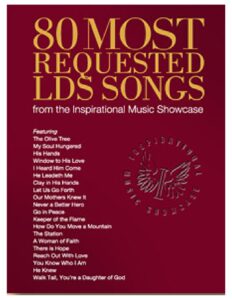 |
80 Most Requested LDS Songs (Mormon music) |
| The Mostly Mozart Guide To Mozart by Carl Vigeland (eBook) |
 |
|
| The Mummy (Jerry Goldsmith) | ||
| The Museum – Paper Mario The Origami King (Musescore File).mscz | ||
| The Music Effect Music Physiology And Clinical Applications (Book) |
 |
|
| The Music Lesson A Spiritual Search For Growth Through Music Victor L. Wooten (Book) |
 |
|
| The Music Of Bela Bartok A Study Of Tonality And Progression In Twentieth Century Music (Elliott Antokoletz) Book |
 |
|
| The Music Of Francisco Tarrega (Guitar) |
 |
The Music Of Francisco Tarrega (Guitar) |
| The Music Of Joni Mitchell (Book) by Lloyd Whitesell |
 |
The Music Of Joni Mitchell |
| The Musician, A Guide For Pianoforte Students Grade 6 (By Thomas Ridley Prentice) (1886) |
 |
|
| The New Illustrated Treasury Of Disney Songs |
 |
The New Illustrated Treasury Of Disney Songs |
| The New Real Book Vol 1 – Jazz Classics |
 |
The New Real Book Vol 1 – Jazz Classics, Choice Standard, Pop Fusion Classics CONTENTS |
| The New Real Book Vol 2 |
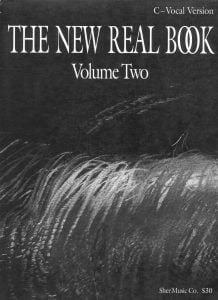 |
The New Real Book 2 contents |
| The New Real Book Vol 3 – Jazz Classics – The Blue note era & swing era |
 |
The New Real Book 3 contents |
| The Nightmare Before Christmas – Jack And Sally Montage – Danny Elfman | ||
| The Nightmare Before Christmas – Jacks Lament |
 |
|
| The Nightmare Before Christmas – Sallys Song |
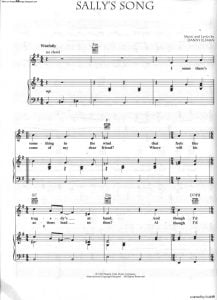 |
|
| The Nightmare Before Christmas – This Is Halloween (Musescore File).mscz | ||
| The Offspring with MP3 audio tracks Guitar Play-Along Vol 32 with TAB |
 |
 |
| The Offspring Ixnay On The Hombre |
 |
The Offspring Ixnay On The Hombre |
| The Offspring Smash |
 |
The Offspring Smash |
| The Omen – The Piper Dreams – Goldsmith (Musescore File).mscz | ||
| The Omen – The Piper Dreams – Jerry Goldsmith Sheet Music Pdf |
 |
|
| The Organ Music Of Bach J.S. by Peter Williams (eBook) |
 |
|
| The Origins Of Music (Book) BY Nils L. Wallin, Bjorn Merker, Steven Brown |
 |
|
| The Passion of Our Lord Eugene Butler (for SATB Choir & organ or piano) |
 |
The Passion of Our Lord Eugene Butler (Choir SATB) |
| The Peanuts Christmas Carol Collection Big Note Very Easy Piano |
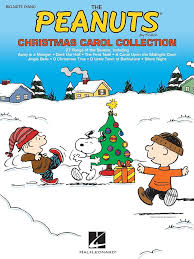 |
The Peanuts Christmas Carol Collection Big Note Very Easy Piano |
| The Phantom Of The Opera – All I Ask Of You | ||
| The Phantom of the Opera – Andrew Lloyd Webber (Piano, Vocal, Guitar) |
 |
 |
